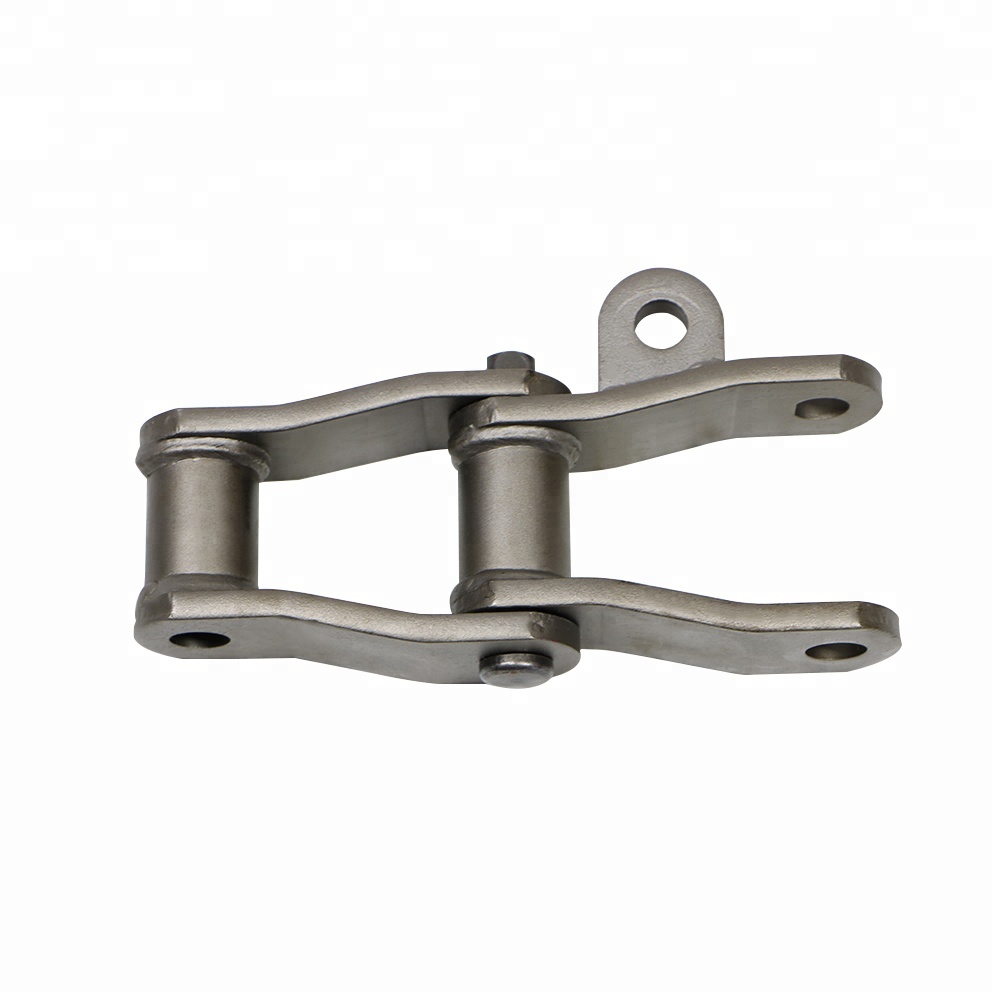The Strength of Welded Chain: An Overview
Welded chain stands out as a superior choice for industrial applications due to its exceptional strength characteristics. Its strength-to-weight ratio surpasses that of standard steel chains, making it an optimal selection for heavy-duty tasks.
This robustness is primarily attributed to the use of high carbon-content steel in the manufacturing of welded chains. This unique composition results in a chain with remarkable tensile strength while maintaining a comparatively lighter weight than traditional steel chains. Consequently, welded chains exhibit exceptional resistance to abrasive wear, rendering them ideal for rigorous industrial use.
The quality of a welded chain is fundamentally determined by the materials employed during its production. Typically crafted from basic steel, these chains often undergo heat treatment to maximize their strength potential.
Welded chains can vary in strength depending on the size of their welded links. To provide a comprehensive understanding of the strength of welded chain, this article delves into the specifics.

What Is Welded Chain?
Welded chain is a prevalent type of chain utilized in industrial and agricultural settings. Its design, characterized by welded connections, combines strength and lightweight attributes. This chain comes in two primary variations: carbon steel and stainless steel, both designed for heavy-duty applications.
Welded chains have been in use since the 1930s. As the name suggests, these chains feature welded connections that reinforce their structure. This welding process involves attaching chain barrels to the inside of the sidebars, significantly enhancing durability. Consequently, welded chains emerge as high-strength solutions suitable for demanding applications, including overhead lifting and towing.
Moreover, these chains are fabricated from steel or stainless steel and often feature a protective vinyl sleeve. Variants of welded chains include single-loop chains, double-loop chains, and agricultural safety chains, each tailored to withstand substantial loads and serve diverse purposes.
Strength of Welded Chain
The strength of welded chain can be influenced by the grade of steel used. Low-grade steel chains offer a cost-effective and durable option for many applications. On the other hand, high-grade carbon steel chains boast a superior strength-to-weight ratio and enhanced resistance to abrasive wear. The final strength of a welded chain is contingent on the specific steel grade employed.
Welded chains are available in various forms, including coil-welded chains, proof coil welded chains, and machine-welded chains, each catering to distinct requirements:
Coil-Welded Chains: These chains come in different lengths, including short, medium, and long variants. They are available in zinc and bright finishes and are typically packaged in 100-foot cartons. Proof Coil Welded Chains, constructed from basic steel, are often found in zinc finishes and are offered in 100-foot reels and 500-foot boxes. These chains are ideal for various heavy-duty applications.
Passing Link Welded Chains: This type, made from basic steel, is renowned for its superior strength. Designed to pass freely through the links, it features a bright finish and is also available in 7018, 6011, and 6010 welded variations. Among these, the 6011 welding rod is particularly suitable for heavy-duty applications, while 7018 and 6011 are the most commonly used.
Welded chain manufacturing involves the fusion of chain ends without filler material. This process entails heating the ends to forging temperature and subsequently passing the chain to a welder, who machines the links without filler. After the welding process, excess material is trimmed.
The ultimate breaking strength of a chain is determined by its grade, with a higher number of strands within a single link correlating to increased durability. Various grades of welded chain exist, with high-grade options being the strongest and most versatile, boasting a tensile strength of approximately 55,000 psi.
To evaluate the strength of a welded chain, one should consider its maximum working load capacity, which varies based on the chain's type and size:
No. 80 Welded Steel Chain: Offers a maximum working load capacity of 75 pounds.
Coil Welded Chain: Features maximum working load capacities ranging from 195 pounds to 635 pounds, contingent on the chain's size.
Machine Welded Chain: Exhibits maximum working load capacities spanning from 215 pounds to 700 pounds, depending on the chain's size.
Proof Coil Welded Chain: Provides maximum working load capacities ranging from 750 pounds to 4,500 pounds, contingent on the chain's size.
Hi-Test Steel Welded Chain: Boasts maximum working load capacities ranging from 2,600 pounds to 9,200 pounds, depending on the chain's size.
In conclusion, the strength of welded chain is a critical consideration when selecting the appropriate chain type for various industrial and agricultural applications. The choice of steel grade, chain type, and size will determine the chain's strength, making it essential to match the chain's specifications to the specific requirements of the task at hand.
GIDI CHAIN LIMITED supply lots of roller chain, conveyor chain, Leaf Chain, welded chain, forged chain, Palm Oil Mill Chain, Hoisting Chain,Mine and Metallurgy Chain, etc. totaling over 3000 varieties. and 90% of chains are exported to worldwide, Which mainly export to Southeast Asia, European, North America, South America. Chains are welcomed by customers with the excellent quality. Our company owns more than 100 sets of advanced and professional manufacturing equipment, Perfect and rigorous QC system is implemented in every process from material purchasing to finished products packaging. Also, we have passed the ISO9001: 2015 Quality Management System Certification.
More Detail : www.gidi-chain.com
